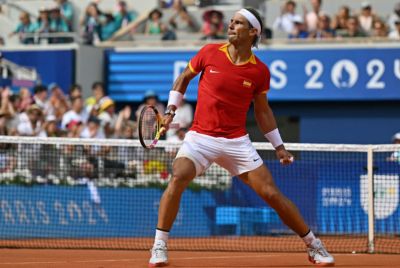London Olympics: Muslim Athletes In a Fix Over Ramadan Fasting

Muslim athletes who are in London to compete at the Olympic and Paralympic Games are having difficulty reconciling their will to win with their desire to observe Ramadan, which prohibits eating and drinking during daylight hours for one month.
The month of Ramadan began on 20 July and is observed by Muslims around the world.
Humaid Al Darae, a judo competitor from the United Arab Emirates, fears that he will be unable to take part in the Games without food or drink.
"If you don't eat and you enter a competition, you might faint. God is merciful and compassionate, even when our sins are many," Al Darae told CNN.
Fasting between sunrise and sunset is one of the five pillars of Islam, and is keenly observed in Muslim countries. Saudi Arabia has issued a warning to non-Muslim expatriates to refrain from eating, drinking or smoking in public for the month, or face expulsion.
"Maybe some people will fast, and that's good for them. But for me, I can't risk losing any of my matches," Al Darae added.
Although the exact number of Muslim participants in the games is not known, Al Darae is far from alone.
Muslim athletes in London face a stern test, with nearly 17 hours of daylight.
"It's a 17-hour fast in London. It's not like here in the Middle East. How much can a person eat in one meal? You can't have, say 3,000 or 4,000 calories in one meal. You need time to digest," says sports nutritionist Hala Barghout from the UAE.
However, some Muslim leaders from the Middle East are insisting that their religious followers stick to the practice regardless of how it affects their performance in the Games.
"Playing sports is not a requirement in Islam. Players become athletes by choice. This optional activity, therefore, does not allow athletes to break their fast. They must be ambassadors of their faith. Meaning that Islam must be present in their actions, and they do not fall into anything that Islam forbids," Mufti Ahmed Abdul Aziz al Haddad, said.
One alternative that has been suggested to some Muslim athletes is that if they observe Islam's teachings on charity by feeding 1,800 poor people, they might postpone their Ramadan fast until later in the year.
© Copyright IBTimes 2025. All rights reserved.





















